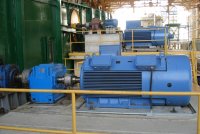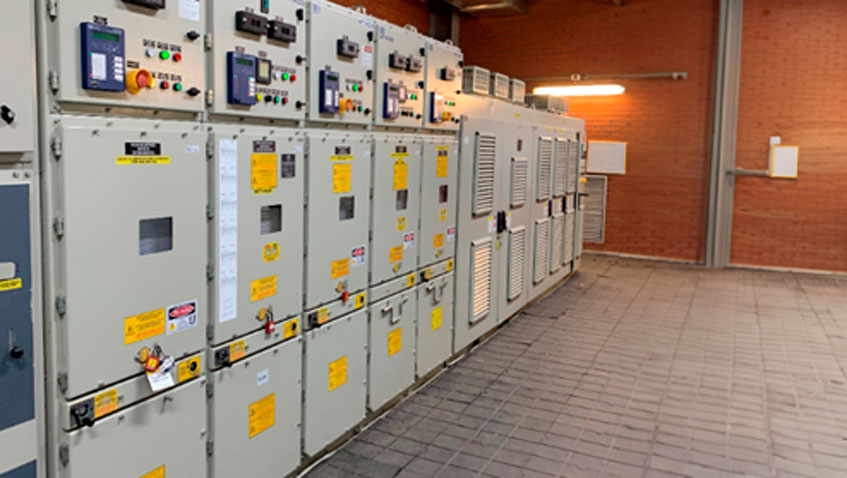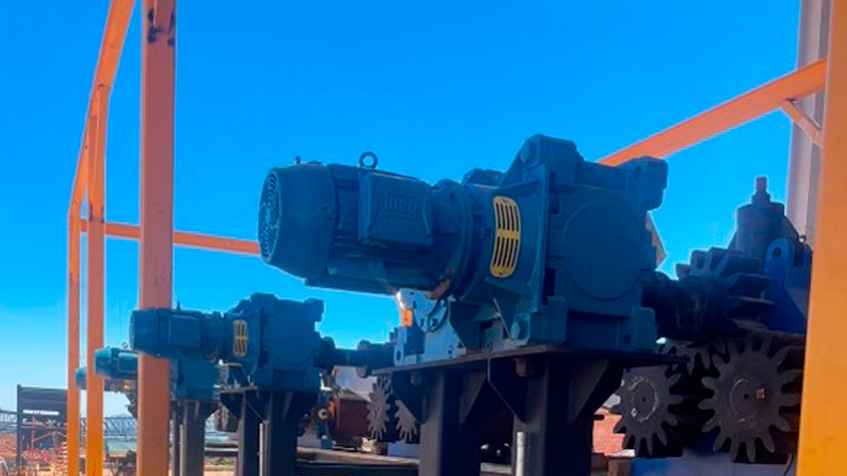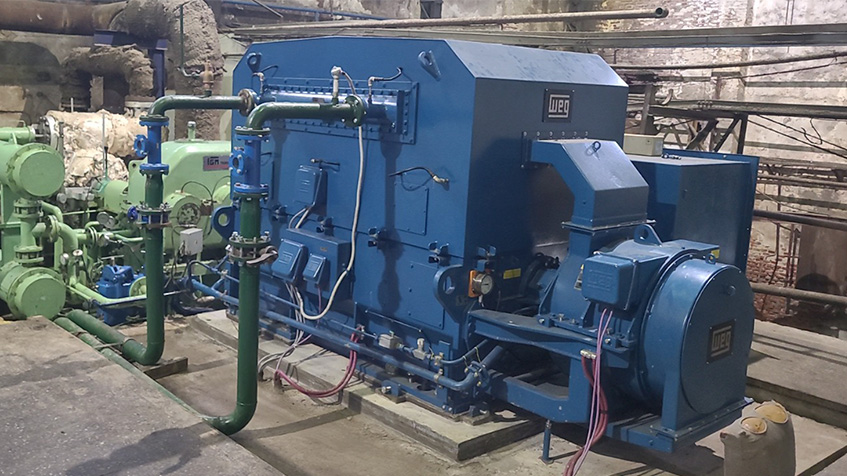The company has just inaugurated the Jaguaruana mill in the state of Ceará. Brazil. This has the capacity to produce between 40 and 60 million liters/year of ethanol, around 90 million liters/year of cachaça (another name for aguardente), as well as the capability to produce neutral alcohol. Totally automated, the new plant is the result of an investment of approximately US$ 145,580 mil. It’s one of the most modern in the world and it’s strategic for the company. With the new mill, the goal is to supply one third of the market of Ceará with ethanol for the next three to four- years, and increase the turnover of the group by around 20%. Today, Ceará imports 160 million liters/year of ethanol and practically all the product goes to gas pumps.
Partners for over thirty- years, for this new challenge Ypióca has once again turned to WEG to provide automation solutions, with key products in operation from the planting of the sugarcane (such as the controlling panels of the water collection and irrigation pumps, for example) to the mills and plants. “At the Jaguaruana mill, the whole automation project is WEG,” says the Engineering manager of Ypióca, José Paulo dos Santos. “WEG equipment is also playing a key role in power generation, drives and protection of the motors that drive the machines and equipment.”
The combination of WEG’s CFW-11M (modular drive) (427 A) and the 500 HP 690V HGF Line motor drives the twin mills at Jaguaruana. The CFW-11 M is the new generation of WEG frequency inverters for high voltages available in powers from 400HP to 2,500 HP and voltages from 380V to 690V with 6 and 12 pulse or regenerative input rectifiers.
The Jaguaruana mill also has two sets of CFW-11M 811A inverters on the defiber, blades 1 and 2, to drive the 1100 HP, 900 HP and 500 HP motors, and several WEG transformers: special (1000kVA / 2000kVA / 2500kVA / 3500kVA) units (690V secondary voltage).
The Engineering manager of Ypióca says that the competition to choose the supplier was fierce, but due to the exemplary after sales service and the 100% Brazilian technology that Ypióca has known for a long time, the decision was to extend the partnership. “WEG has excellent customer service; there’s no other in the country to match it,” said José Paulo dos Santos.
Ethanol in Brazil
The Jaguaruana industrial site on the banks of the Jaguaribe River, the longest river in Ceará, has an area of 100- thousand square meters and around 6- thousand hectares of land to plant sugarcane, the main raw material of the industry.
The main product, ethanol, is no longer just a possible alternative fuel, but has become a sound source of clean and sustainable energy which, thanks to the use of the biomass, helps to reduce the emission of pollutant gases into the atmosphere. According to the Ministry of Foreign Affairs, the company also employs nearly a million workers around the country, many of them through family co-operatives. The consumption of ethanol in Brazil took a great leap forward over the last few years with an increase in the number of flex-fuel vehicles (alcohol and gas) on the market, and reached 18- billion liters/year in 2008.
| Profit mill |
| Businesses with alcohol in Brazil had a turnover of US$ bn in 2008 |
| US$ 2.9 bn in sales of alcohol to mix with petrol |
| US$ 2.2 bn in sales of alcohol fuel |
| US$ 766 mil in exportation to 46 countries |
| US$ 373 mil for food, perfume and cosmetics industries |
| US$ 19 mil in sales of alcohol as input for the chemical industry |
| Total US$ 6.2 bn |
| Source: Datagro/Exame magazine |






